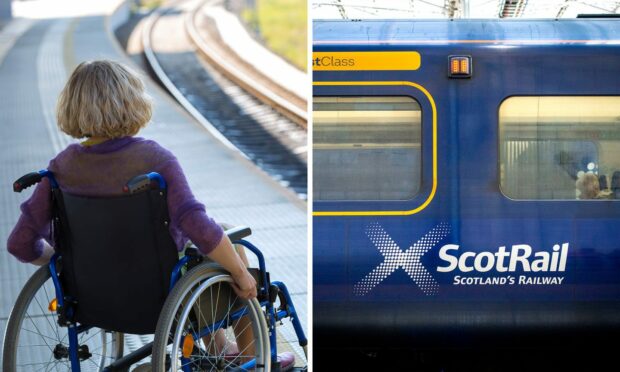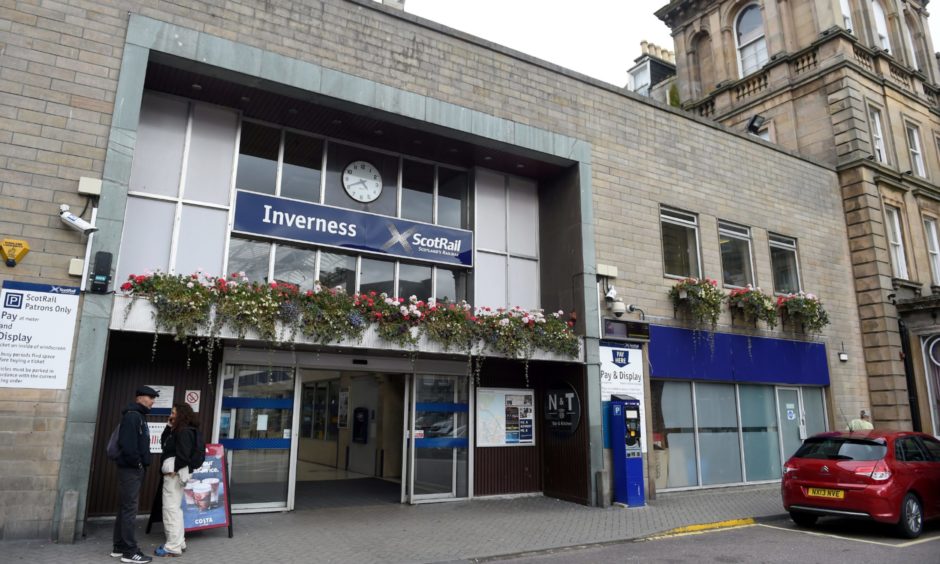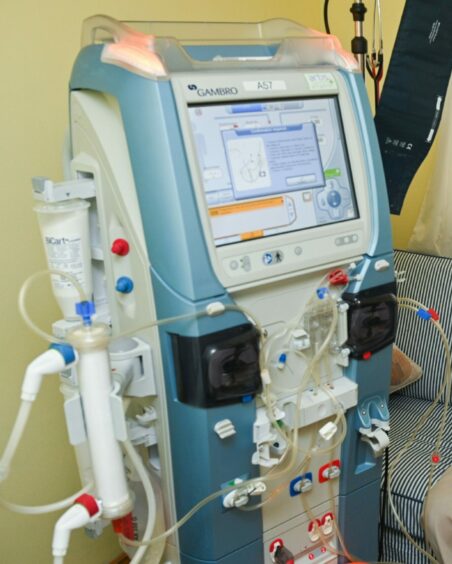Passengers on the West Highland Line and the Far North Rail Line are raising concerns about lack of ScotRail trains to take them to hospital appointments in the cities.
A temporary timetable introduced by the operator will mean the last train to Wick and Thurso will leave at 2pm from Inverness.
In Oban, the first train for Glasgow now leaves at 8.57am instead of 5.21am – leaving patients who need treatment in the city with a transport headache.
Oban has a limited number of hospital treatments available to residents at Lorn and Islands Hospital. Instead they are asked to travel to the Central Belt for appointments with consultants and for treatment.
Cervical examinations take place in the Vale of Leven Hospital, maternity care in Paisley, surgery is done in city hospitals, children’s care is in Queen Elizabeth’s, and endoscopy procedures in Gartnavel – some services that are only available in the city.
Dialysis care is offered in Fort William and at the Vale of Leven, and while most people choose to use taxi services for their three-times weekly sessions – they now have no choice.
Wheelchair users have no alternative to ScotRail trains
Until the timetable change, it had been possible to travel by train and taxi to appointments, freeing up the time of patients who are forced to spend the whole day waiting for shared transport for an hour’s dialysis.
One man told the P&J: “I was able to work on the train to and from my appointment – I can not do that in a taxi.”
The early train from Oban got people in to Glasgow by 9am, leaving them free for onwards travel to treatment centres at Queen Elizabeth’s, Gartnavel, Paisley and to other city specialist units, including private health care.
However, the temporary timetable now mean the earliest a train passenger can get to the city from Oban does not arrive until 11.56am – missing many morning clinics.
Jennifer Cook, who lives in Oban and receives treatment in Glasgow every month, said: “I used to be able to take the 5.21am train to Glasgow. I then took the bus to the Jubilee Hospital for my treatment.
“I use a walking aid and while I can walk – it is impossible to get on the bus in Oban and do the full journey on it to the city. And there is no early bus that worked in with the time.
“The early train is a lifesaver for someone like me, who cannot drive.
“I had already organised my travel by train and will now need to get a refund. The alternative is using a taxi for the entire journey, and reclaiming it from the NHS, or staying overnight in the city.
‘I feel too sick’ for the three-hour drive home after hospital
“As someone in a wheelchair with complex needs it is very difficult to be away from home.”
One woman, who did not want to be named, said she was receiving cancer care in the city.
The 51-year-old from the Isle of Seil, south of Oban, said: “I need to go to the hospital in Glasgow every few days at the moment. I have a rare cancer that can only be treated in the city.
“I have been taking the early train, getting to the hospital by 10am and then taking the late train home, because most of the time I feel quite sick. I would find it impossible to drive after treatment.
“But now that it looks like the early train has gone, I am looking at getting to the hospital by 1.30pm – that is if I can change my appointments to the afternoon. I think that is too late for the kind of treatment I am on, as I need to be in hospital for around five hours.
She added: “So I will need to leave the night before. I am still waiting for confirmation on who will help me with the cost of that.”
Patients in Fort William are generally routed to Inverness if they can not be treated in the Belford Hospital.
However, should they need to travel to Glasgow, the second and last train leaves the Highland town at 11.40am.
Forced to sleep in station overnight
A caller on Call Kaye on BBC Radio Scotland this morning said he could be forced to sleep overnight in the train station in Inverness.
“David” told Kaye Adams he was a wheelchair user and would be travelling from Wick to Inverness once a month for treatment.
Saying that his wife was also a wheelchair user, he said: “We have no option other than taking the train.
“We can not use the bus, it is just not suitable.”
The last train from Inverness to Wick is now 2pm.
He said: “It is now impossible for us to get to Inverness and home in a day. The 6.18am train gets into Inverness at 10.38am.
“So after we get finished at around 5pm, there is no alternative but to stay the night in Inverness. It is maybe affordable in the winter when hotel prices are cheaper – but there are no accessible rooms in the city in the spring, summer or autumn.
“Inverness is hoaching with people and the prices of rooms are sky high – and that is the reality.”
He said: “You have to hang around in the station overnight – that is the only alternative we have. But the staff put you out at 10pm when the station closes.”
ScotRail’s service delivery director, David Simpson, explained he shared the “frustration” of passengers about the reductions.
He said: “The temporary timetable only came into operation today and it’s not possible to say how long it will be in place.
“We’re keen to resolve the dispute as soon as possible and the timetable will operate for as long as it needs to in order to provide a dependable service to our customers.
“There will be a review of the timetable and if we’re able to return it back to normal, or make improvements, we’ll make sure we advise customers through our usual channels.”
A spokesman for NHS Highland said: “NHS Highland would encourage patients in Fort William and Oban experiencing issues with rail travel timetable changes having to travel to Glasgow to contact relevant Patient Transport Service points for support, information and advice on The Highlands and Islands Patient Travel Scheme.
“Contact details can be found on NHS Highland website here.”



Conversation